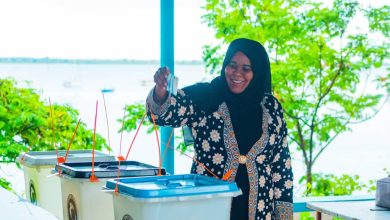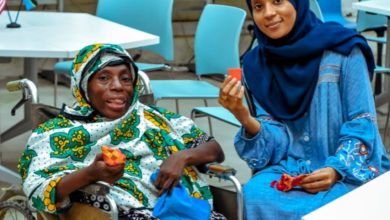Makini candidate outlines economic revival plans

ZANZIBAR: CHAMA cha Makini presidential candidate for Zanzibar, Mr Ameir Hassan Ameir has unveiled a bold economic agenda focused on job creation, investment and improved public services, pledging to strengthen the economy through tourism, agriculture, fisheries and infrastructure development.
Speaking at a press briefing held at Idriss Abdulwakil Hall as part of his campaign for the October 29 General Election, Mr Ameir said that his administration would work to raise the minimum wage from 300,000/- to 1.5m/-, improve public service delivery and fight corruption.
“Our first priority is to boost productivity and rebuild Zanzibar’s economy by focusing on sectors with the greatest potential, tourism, agriculture and fisheries,” he said.
He pledged to spur tourism growth by promoting cultural, ecological and historical attractions; modernise agriculture through improved irrigation and organic farming; and develop the fisheries sector by providing modern equipment and training for local fishermen.
Mr Ameir also promised large-scale investment in education and skills training, aiming to produce a workforce capable of competing in both local and global markets.
His plan includes the development of small and medium industries, enhanced infrastructure such as roads, electricity, clean water and digital communication systems and a business-friendly environment for investors.
“We will cut red tape and eliminate bureaucratic barriers to attract both local and foreign investors,” he said.
In a sweeping anticorruption stance, the Makini candidate promised to introduce strict laws, including a minimum 15-year jail sentence for corrupt officials, confiscation of stolen assets and a lifetime ban from holding public office for convicted leaders.
ALSO READ: Makini Party promises major agriculture, industry reforms
He also projected that his government would increase public revenue to not less than 1.7tri/- per month through improved tax systems and digital reforms, ensuring that resources are used effectively and transparently.
Mr Ameir made a headline-grabbing promise, a monthly allowance of 500,000/- for every Zanzibari if elected president.
“Immediately after being sworn in, every Zanzibari will receive 500,000/- each month. This is not a dream; it is a vision. But it will require hard work and collective commitment,” he told journalists.
He clarified that such ambitious social programmes would only be feasible if economic reforms are effectively implemented and national income significantly increased.
Mr Ameir further pledged inclusive development, stating that people with disabilities, the elderly and other vulnerable groups would be prioritised in government programmes to ensure that “no citizen is left behind.”





